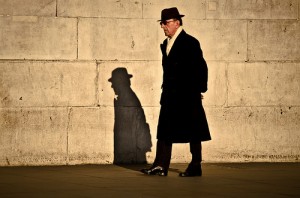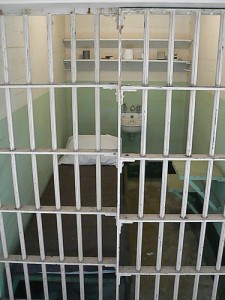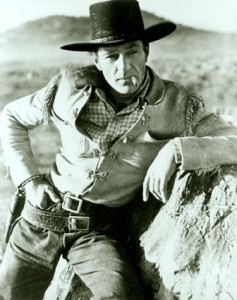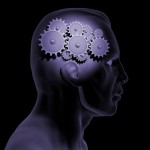Bipolar Disorder in Men
Unlike women, men don’t have any completely unique issues when it comes to bipolar disorder. Because women can give birth and breast feed, there are a number of issues that only affect them. However, there are a number of ways in which bipolar men are more likely to be affected, or, on a whole, are affected to a greater degree. Men with bipolar disorder 1 tend to have more severe and earlier bouts of mania than bipolar women do. Men are more prone to substance abuse, violence and criminal behavior than bipolar women are. Finally, men are less likely to seek treatment for bipolar disorder than bipolar women are.
Overall Differences
Men and women have bipolar disorder at roughly even rates. However, there are some significant differences in the types of bipolar disorder that men manifest as opposed to women.

Source: garryknight - CC BY-SA 2.0
Second, men are less likely to have rapid-cycling bipolar disorder than women are. Someone has rapid-cycling bipolar disorder when he or she has four or more depressive, hypomanic, manic or mixed episodes during a single year. Men are more likely to have longer-lasting episodes and to have a more spread-out mood cycle, and are only about a third as likely as women to be rapid cyclers.
Third, men are less likely to have mixed symptoms during hypomanic states than bipolar women are. In a 2005 study only 42% of men were found to present depressive symptoms during hypomanic episodes, while 72% for women. In other words, hypomanic states for men tend to be more “pure” emotionally than those same states for women.
In general, what men experience is closer to “classical” understanding of bipolar disorder. The man is more likely to begin his cycling with an especially severe manic episode (a kind of breakdown). Following this, he is likely to have long periods of high and low mood that are less likely to blend into each other in the form of mixed states.
Note that all of these are tendencies. There are men with rapid-cycling bipolar disorder 2 who had a first onset that was depressive, and there are women with standard-cycling bipolar disorder 1 who had a first onset that was manic. Then there are the people in between (including myself as a rapid-cycling bipolar 1). However, these are the overall tendencies.
Anger and Violence

Source: timpearcelosgatos - CC BY 2.0
In addition, in truly manic phases, those with bipolar disorder can sometimes be prone to violence. As I mentioned above, bipolar mania does not usually lead to violence, even among men. However, violent outbursts are more common among men than among women. Musician Daniel Johnston, for example, frightened a woman so badly when trying to scare demons out of her that she jumped out of a window, breaking both of her ankles.
This, in turn, leads to a higher incarceration rate among bipolar men than among bipolar women. While courts are increasingly sensitive to violent incidents that occur during full blown manic episodes, violent incidents that arise from hypomanic agitation tend to still be fully punished. In addition, even people who were clearly manic and even delusionally so are sometimes imprisoned for some of their behavior while manic. In fact, Human Rights Watch estimates that men with mental illnesses in the United States are two to four times more likely to be imprisoned than their representation in the population.
Increased Substance Abuse
Men with bipolar disorder are also more likely than bipolar women to be addicted to substances, including illegal drugs and alcohol. A 2004 study published in the journal Bipolar Disorder showed that bipolar men were approximately twice as likely to be addicted to either illegal drugs or alcohol than women. Another study from the same journal showed that 72.8% of bipolar men had had some sort of substance abuse problem at some point in their lifetimes, compared to 27.2% among women. (These numbers are consistent, since the first study dealt with current substance abuse, while the second dealth with limetime abuse).
As a result, most bipolar men can expect to have had some sort of substance abuse problem during their lifetimes. No one is entirely sure what the cause of this disparity is between bipolar men and bipolar women in terms of substance abuse. Some would argue that it is because the men are “self-medicating”, meaning that they are using substances to cope with the various episodes associated with bipolar disorder. This would tie the increased use of substance abuse to the next issue, that men are less likely to seek treatment for bipolar disorder than women.
Less Likelihood To Seek Help

Public Domain
In a way, men’s unwillingness to seek help for bipolar disorder is partly just an extreme version of not wanting to ask for directions when lost. Independence has long been considered a part of specifically male virtue, and turning over one’s care to other people can make men feel powerless and feel like they are not taking appropriate responsibility for their lives. It isn’t simply a matter of being a “tough guy”; men have a sense of responsibility that leads them to try to take things into their own hands.
If you are a man or you know a man who is having difficulty seeking appropriate treatment, one way to approach the problem is to reconceive of being a “patient” more along the lines of being a “client”. By learning as much as possible about his bipolar disorder and assuming responsibility for his own mental health, he can see physicians and therapists as being there to help him with his own management of the condition. This allows him to get the health services he needs without feeling like he is receiving charity or getting “taken care of”.
Conclusion
Because men don’t give birth, men don’t have much in the way of bipolar issues that are unique. However, that doesn’t mean that bipolar disorder doesn’t affect them differently. Men are more likely to have bipolar disorder 1, and they are more likely to have versions of that condition that resemble the classical, months-long mood swings. Their bipolar disorder is more likely to erupt into anger and possibly criminal behavior. They also are more likely to use alcohol and other drugs, rather than to seek professional attention for their condition. Men with the condition should be especially attentive to these tendencies so as to avoid their dangers.









Leave a Reply